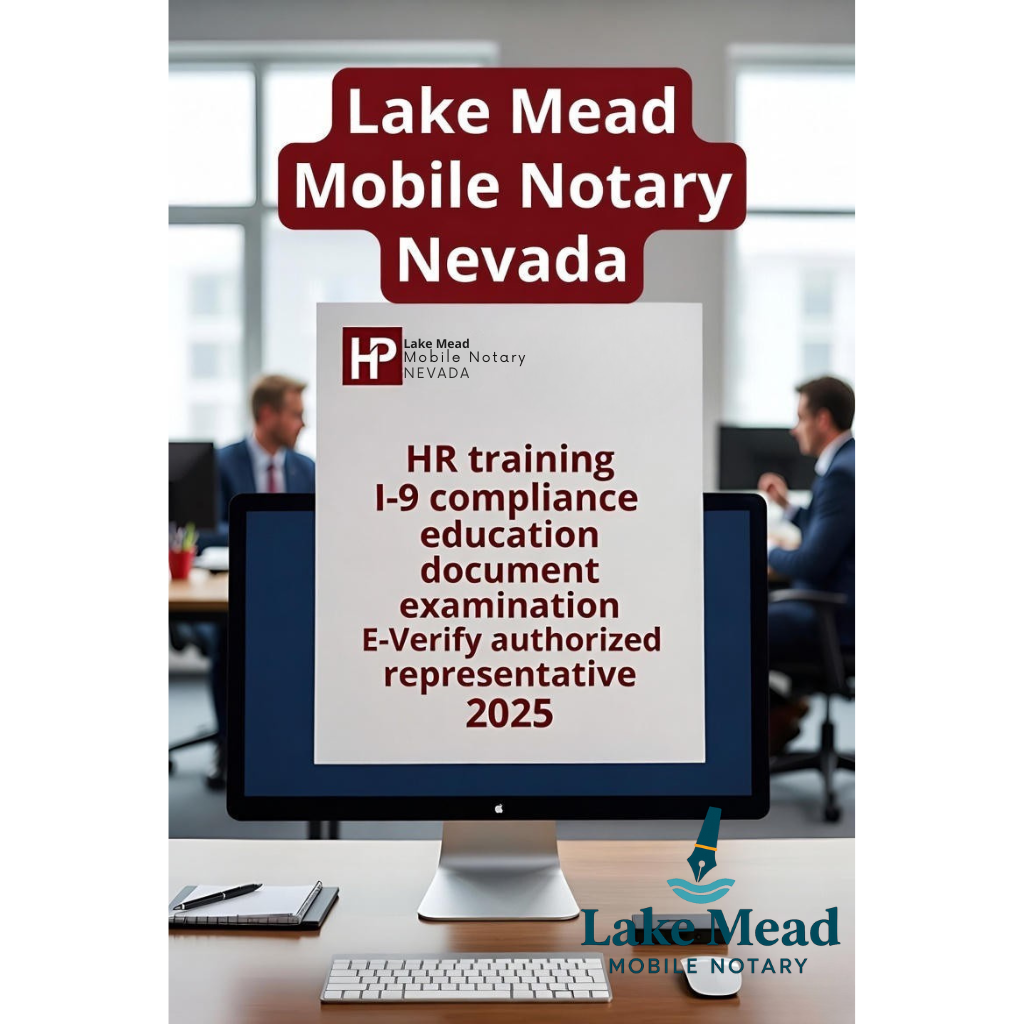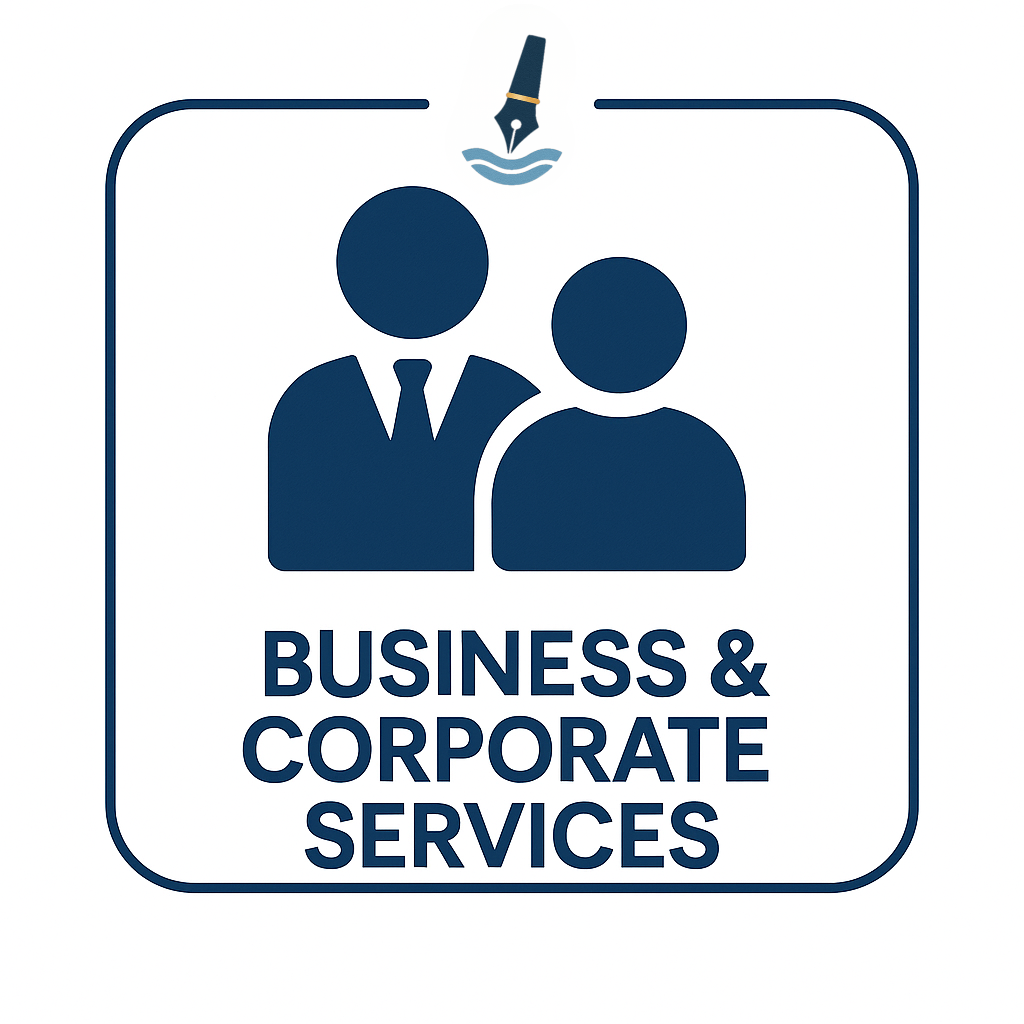Why HR Staff I-9 Training Matters in 2025
U.S. Immigration and Customs Enforcement (ICE) expects employers to maintain trained HR personnel capable of conducting proper Form I-9 verification—yet most employers fail to provide comprehensive compliance education beyond cursory onboarding sessions. Nevada employers throughout Reno, Sparks, and Laughlin face elevated enforcement risk as ICE audit projections exceed 12,000 inspections annually and penalty ranges reach $288–$2,861 per form for paperwork violations and $716–$28,619 per worker for substantive violations.
Proper HR training serves as preventive medicine against compliance failures—employers who document regular training programs demonstrate good-faith compliance effort during ICE audits, potentially reducing penalty severity or avoiding fines entirely. Training must address evolving regulatory requirements including new Form I-9 editions (most recently January 20, 2025), remote verification procedures for E-Verify employers, document fraud detection, reverification deadlines, and anti-discrimination obligations. Organizations that treat I-9 training as one-time checkbox activity rather than ongoing compliance investment face compounding liability as staff turnover erodes institutional knowledge and regulatory changes outpace employee awareness.
Core HR Training Topics for I-9 Compliance
Comprehensive I-9 training programs must cover federal requirements, practical procedures, and Nevada-specific considerations. Training should address both theoretical knowledge (legal standards, document categories) and hands-on skills (physical document examination, fraud detection, system navigation).
Essential Training Modules:
- Form I-9 Structure and Completion Requirements: Three-section form architecture, employee vs employer responsibilities, preparer/translator rules, signature requirements, date formatting standards
- Timing Rules and Deadlines: Section 1 completion on or before first day of work for pay, Section 2 completion within 3 business days of start date, Section 3 reverification before work authorization expiration
- List A, B, and C Acceptable Documents: Comprehensive document categories, proper combinations (List A alone OR List B + List C), expired document rules, receipt documents and limitations
- Physical Document Examination Standards: "Reasonably appears genuine" legal standard, common security features (holograms, microprinting, RFID), fraud indicators, photocopies vs originals
- Remote Worker Verification Procedures: E-Verify alternative procedure requirements, authorized representative coordination, live video examination protocols, acceptable technology platforms
- E-Verify Procedures (if enrolled): Case creation timelines, Tentative Non confirmation (TNC) resolution, photo matching tools, system navigation, employee notification requirements
- Section 3 Reverification Requirements: When reverification is required vs prohibited, acceptable reverification documents, updating vs replacing expired forms, employment authorization extensions
- Anti-Discrimination Compliance: DOJ Office of Special Counsel enforcement, citizenship status discrimination, document abuse, unfair documentary practices, retaliation prohibitions
- Retention and Storage Rules: 3-year/1-year retention formula, electronic vs paper storage requirements, audit access procedures, document destruction policies
- ICE Audit Procedures: Notice of Inspection (NOI) response requirements, 3-business-day production deadline, penalty calculation methodology, correctionopportunities
Who Needs I-9 Training at Your Nevada Organization
Employers must identify all personnel with I-9 responsibilities and provide role-appropriate training. Simply training HR generalists while ignoring front-line managers, recruiters, and authorized representatives creates compliance gaps that ICE will exploit during audits.
Positions Requiring I-9 Training:
- HR Specialists: Primary responsibility for Form I-9 completion, document examination, system management, audit response
- Hiring Managers: Understanding first-day-of-work timing rules, conditional employment offers, orientation scheduling coordination
- Recruiters/Talent Acquisition: Avoiding pre-employment I-9 completion, proper job offer language, timing restrictions
- Payroll Staff: Identifying new hire trigger dates, coordinating with HR on I-9 deadline compliance, SSN no-match letter handling
- Authorized Representatives: Document examination procedures, fraud detection, signature authority, liability limitations
- Compliance Officers/Internal Auditors: Internal I-9 audit procedures, error correction protocols, documentation standards
- Legal/Risk Management: ICE audit response procedures, penalty negotiation strategies, discrimination complaint defense
- Executive Leadership: Understanding organizational liability exposure, budget allocation for compliance programs, policy approval authority
Multi-location Nevada employers operating facilities in Fernley, Pahrump, Elko, and rural areas must ensure consistent training delivery across all locations—branch managers often receive inadequate training creating location-specific compliance failures that ICE discovers during inspection.
Training Frequency and Documentation Requirements
Federal law does not specify mandatory I-9 training frequency, but best practices and audit defense considerations demand regular, documented training programs. Employers who cannot produce training records during ICE audits face presumption of negligence and reduced penalty mitigation opportunities.
Recommended Training Schedule:
- Initial training: All new HR hires within 30 days of assuming I-9 responsibilities
- Annual refresher training: All authorized I-9 personnel, minimum 1-hour comprehensive review
- Regulatory update training: Within 60 days of significant regulatory changes (new forms, procedure updates, major enforcement actions)
- Remedial training: Immediately following internal audit findings, ICE inspection, or identified compliance failures
- Manager orientation: All newly promoted supervisors/managers within 90 days, covering timing rules and discrimination avoidance
- Quarterly compliance briefings: Short (15-30 minute) updates on enforcement trends, common errors, policy reminders
Training Documentation Best Practices:
- Maintain signed attendance sheets with date, duration, topics covered, trainer name/credentials
- Distribute training materials (presentation slides, handouts, reference guides) and retain proof of distribution
- Conduct post-training assessments (quizzes, practical exercises) documenting competency verification
- Store training records electronically with centralized HR compliance documentation for audit access
- Create individual employee training files tracking all I-9-related education over employment tenure
- Update training curriculum annually reflecting regulatory changes, enforcement trends, organizational error patterns
Training Delivery Methods and Resource Options
Nevada employers can choose from multiple training delivery formats based on organizational size, geographic dispersion, budget constraints, and learning preferences. Effective programs often combine multiple methods addressing different learning styles and scheduling needs.
Training Delivery Options:
- In-person seminars: Immigration attorneys, HR consultants, or internal compliance staff conduct live training sessions
- Webinars: Live virtual training accommodating remote workers and multi-location organizations
- On-demand video courses: Self-paced e-learning platforms allowing flexible scheduling and repeat viewing
- Documentation workshops: Hands-on practice examining physical documents, completing forms, identifying fraud indicators
- Mock audit exercises: Simulated ICE inspections testing organizational readiness and documentation quality
- Professional conferences: SHRM, American Immigration Lawyers Association (AILA), and industry association events
- Government resources: USCIS M-274 Handbook, DOJ webinars, E-Verify training modules (free)
Recommended Training Resources:
- USCIS M-274 Handbook for Employers: Official 200+ page guidance document (free download)
- E-Verify Training Resources: Government-provided webinars and certification program for enrolled employers
- DOJ Employer Education: Office of Special Counsel discrimination prevention training materials
- Immigration law firm CLE programs: Continuing legal education seminars (often free for clients)
- SHRM I-9 Compliance Specialty Credential: Professional certification demonstrating expertise
- Private compliance vendors: Third-party platforms offering paid training courses, certification programs, audit tools
Nevada-Specific Training Considerations
While Nevada imposes no additional state-level I-9 requirements beyond federal compliance, employers training HR staff must address Nevada-specific workforce patterns and enforcement trends that distinguish Silver State compliance challenges from other jurisdictions.
Nevada-Focused Training Topics:
- Hospitality & Casino Industry I-9 Compliance: High turnover, seasonal workers, 24/7 hiring operations, rapid onboarding pressures unique to Las Vegas Strip, Reno gaming properties
- Remote Worker Verification for Rural Nevada: Coordinating authorized representatives for employees in Elko, Ely, Winnemucca lacking local HR presence
- Construction & Mining Sector Compliance: Temporary workers, subcontractor vs direct-hire I-9 responsibility, project-based hiring cycles
- Nevada E-Verify Rules for Public Employers: State mandate for public agencies/contractors vs voluntary enrollment for private employers
- Multi-State Workforce Management: Employees living in California/Arizona/Utah working Nevada locations; cross-border authorized representative coordination
- Document Fraud Patterns in Nevada: Regional counterfeit document trends, casino/hospitality-specific fraud indicators
Employers in Carson City, Winnemucca, and other Nevada locations should incorporate state-specific examples and scenarios into training curriculum making compliance concepts relevant to actual workforce situations HR staff encounter.
Best Practices for Nevada Employers
1. Designate an I-9 Compliance Coordinator
Assign one senior HR professional as organizational I-9 subject matter expert responsible for training program development, policy updates, audit preparation, and serving as escalation contact for complex verification scenarios. Compliance coordinator should receive advanced training (SHRM specialty credential, immigration law firm seminars) exceeding baseline staff education.
2. Create Internal I-9 Training Manual
Develop customized written procedures reflecting organizational policies, system workflows, common scenarios, approved forms/templates, and escalation procedures. Training manual should include screenshots of electronic I-9 platforms, document examination checklists, fraud indicator reference guides, and contact information for authorized representatives and legal counsel. Update manual annually incorporating regulatory changes and internal audit findings.
3. Use Mobile I-9 Authorized Representatives for Training Support
Lake Mead Mobile Notary provides professional I-9 training consultation and ongoing authorized representative services throughout Nevada. Our team conducts on-site or virtual training sessions covering document examination, fraud detection, and remote verification procedures. Organizations lacking internal I-9 expertise can outsource Section 2 completion to trained professionals while building internal knowledge capacity. Contact us for Nevada employer training programs: (702) 748-7444.
4. Conduct Quarterly Internal I-9 Audits
Regular self-audits identify training deficiencies and procedural drift before ICE discovers violations. Review randomly selected forms monthly (minimum 10% of new hires), document error patterns, provide targeted remedial training addressing specific weaknesses, and track improvement metrics over time. Internal audit programs demonstrate proactive compliance commitment reducing ICE penalty severity.
5. Subscribe to Regulatory Update Services
Immigration law changes frequently—Form I-9 updates, enforcement policy shifts, court decisions affecting employer obligations. Subscribe to USCIS email updates, immigration law firm newsletters, SHRM compliance alerts, and trade association bulletins ensuring training curriculum reflects current requirements. Assign compliance coordinator responsibility for monitoring updates and scheduling training when significant changes occur.
Training as Penalty Mitigation During ICE Audits
When ICE conducts I-9 inspections, documented training programs serve as critical evidence demonstrating good-faith compliance effort—potentially reducing penalty amounts or converting substantive violations into paperwork violations with lower fines. Employers who cannot produce training records face presumption that violations resulted from negligence or willful disregard.
How Training Documentation Reduces Penalties:
- Demonstrates good-faith compliance effort: Regular training shows organizational commitment exceeding minimum requirements
- Rebuts willfulness allegations: Documented education programs contradict ICE claims of intentional violations
- Supports "reasonable cause" defense: Isolated errors despite comprehensive training indicate inadvertent mistakes vs systematic failures
- Justifies penalty reduction: ICE penalty guidelines include training programs as mitigation factor reducing fine amounts
- Enables corrective action plans: Post-audit remedial training demonstrates commitment to future compliance
Book I-9 training consultation for Nevada employers: https://lakemeadmobilenotary.com/book or call/text (702) 748-7444.
This content is for informational purposes only and does not constitute legal advice. Employers should consult immigration counsel for training program development and compliance guidance specific to their circumstances.

